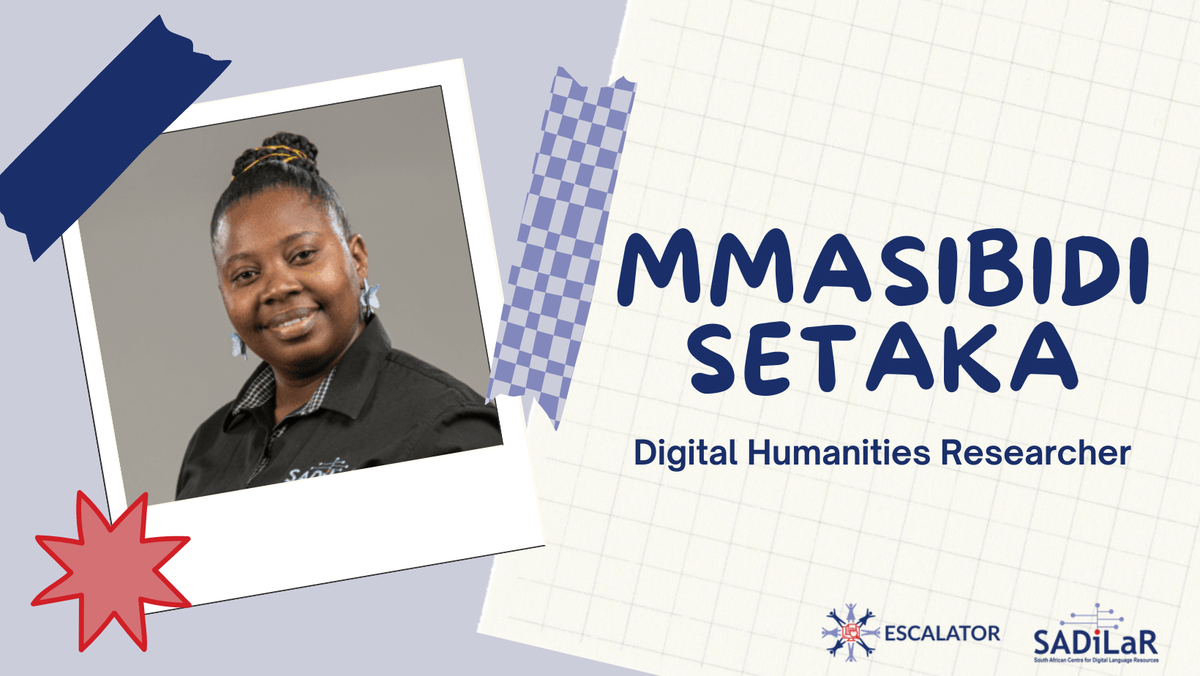International Women's Day event panellist: Meet Mmasibidi Setaka

Today, our spotlight shines on Mmasibidi Setaka, a digital humanities researcher at SADiLaR. Mmasibidi is an active participant in OLS, the Carpentries, PanSALB Sesotho National Body representative, DHASA exco and the UFS Academic Advisory Board - African languages department. She will also be a pannelist on our Women’s Day Event on the 8th of March 2024.
In short
- Preferred name and surname: Mmasibidi Setaka
- Affiliation (where do you work or study): SADiLaR
- Role: Digital Humanities Researcher
- Email: Mmasibidi.Setaka@nwu.ac.za
- LinkedIn: www.linkedin.com/in/mmasibidi-setaka-b9699894
- Website: https://sadilar.org/en/researcher-sesotho/
📽️ What is your all time favourite movie and what makes it so special?
Kingsman: The Secret Service, starring Colin Firth as Harry Hart and Taron Egerton as “ Eggsy" it is a very classy movie about secret agents. My take away from it is how a Harry Hart leads Eggsy to be a gentleman, take responsibility, and also build a career.
📚 Can you describe your background and your current role?
What line of work are you in?
I am a Digital Humanities Researcher focusing on Sesotho at the South African Centre for Digital Language Resources (SADiLaR).
Give a short summary of what you do in this role
I do research in Sesotho combined with digital methodologies. I host workshops to teach academics digital methodologies, I write and publish research, I write project proposals, I am involved in organising conferences and workshops such as DHASA and RAIL. I recently did the Language resources Audit at all the 26 universities in the country.
What did you study?
BA African Languages and Media Studies, BA Hons Applied Languages, MA African Languages: Corpus-based study for Sesotho
How did you get involved in the tech space?
SADiLaR introduced me to the tech space.
What software do you use on a daily basis in your job?
I am currently learning python so that I can apply it to my phd studies. I use different tools depending on the problems I am solving.
How did you learn to use these tools?
I attend the python basics class offered by ESCALATOR
Which tool has the biggest impact on your ability to succeed at work?
Python
Do you think women are well represented in your line of work?
No. This is still a male dominated space
🌱 Tell us more about your community of practice
Describe the purpose of this community from your point of view.
I belong to a number of communities in the tech space and this gives me an opportunity to learn and know that I have help at my fingertips when I need it.
How did you get involved?
It was more on interest. I looked at how the communities of practice can assist me and word of mouth as well. When we network we meet people with different skills and knowledge and learn a lot through these interactions
Why do you find it useful to be a part of this community?
There is always someone to help.
Is your community accessible and welcoming to women? If so, how?
As an example, I am part of OLS, and most of the coordinators of OLS are women who are always willing to help and understand us.
How can other people become a part of this community?
I applied to be a part of the OLS open seeds program and got accepted. However, there are other communities of practice like ESCALATOR, where you do not apply.
💡 What advice do you have for women in Humanities and Social Sciences (HSS) eager to grow their computational skills?
Follow ESCALATOR, be willing to learn. There’s so much to learn.